Living for an extended period in the wilderness can be challenging even if you have the basic needs such as shelter, water, and food covered. Staying clean and healthy becomes mandatory because illnesses and diseases can quickly develop and spread in an environment where infrastructure and modern amenities are non-existent.
A bar of soap, a bottle of shampoo, and some toothpaste can make your stay in the wilderness more pleasant and provide you with a level of comfort similar to the one you’re used to in the civilized world. These items can save your life in a “dirty” environment where your physical health is constantly being put to the test.
And yet, these cheap and everyday items are somehow overlooked by many preppers and survivalists. They have other concerns on their mind, and they don’t bother overthinking about a bar of soap and its absence in a survival scenario.
But a buildup of bacteria can be just as dangerous as any other disaster you are preparing for due to the germs that are looking for a way to get inside your body. And once that happens, all sorts of illnesses can develop, and you will spread your germs to others in your home or shelter.
Staying clean in the wilderness
As a civilized human, your concept of cleanliness involves:
- Having a clean environment.
- Keeping your clothes laundered.
- Having a clean and fresh-smelling body with a set of pearly white teeth.
To avoid germs and diseases, you will have to pay attention to your hygiene in the wilderness, and everything you do in the civilized world to keep yourself clean must be replicated in the woods as well.
This will require some improvisation most of the time, especially if you don’t have enough toiletries or forgot to bring any in the first place. Now it goes without saying that as preppers and survivalists, we need to have the topic of personal hygiene covered no matter what we plan for, and this means stocking up on hygiene items and other essentials.
But what can you do if your cabinet is empty or if you run out of supplies? Well, Mother Nature has you covered, and while a hot shower and a bar of soap might end up becoming luxuries in a survival scenario, there are always alternatives at hand.
No soap, no problem!
The germs on your hands need to be killed because they are particularly dangerous when handling food or if you have wounds you need to mend. If you forgot to pack a bar of soap or ran out of soap days ago, there are still a couple of ways to replace that bar of soap and use some practical alternatives.
Many plants out there contain saponin, a chemical with foaming properties if mixed with water. These plants will help you obtain a gentle cleanser, a suitable facsimile of soap. Pair these pants with a dried wild cucumber that will be used as a loofa, and you should have no problems removing dirt, dead skin cells, and oil from your skin.
For example, Yucca can be found all year long throughout the Southwest. Besides being used extensively by the native Americans manufacturing clothes and baskets, the leaves contain a significant saponin.
You can slice the leaves into thin strands and rub them between your hands with some water, and soon enough, foaming will occur.
Another valuable plant for your cleaning needs is the buffalo gourd or coyote melon. Although it is seen as an annoying weed that grows in various conditions across the United States, its new sprouts or the tips of the leaves can be used similarly to yucca leaves. Just pluck these when needed and rub them between your hands with some water. You can also use entire (older) leaves, but the spines on their edges may be irritating, so it’s up to you to decide what part of the plant fits your needs.
To identify plants with good saponin content in your area, it would be a good idea to consult a plant identification guide, or you can do some extensive online research.
If you don’t find any plants and water is also in short supply, you shouldn’t despair. You can take the sun and air bath because spending some time in the sun will help kill germs. Although not as effective as bathing using soap and water, it’s still better than nothing.
Alternatively, you can rub your skin with ash from burned hardwood just like our early ancestors did. They used to rub their body and faces with ash and then rinse the ash off with water, which was their bath for the day. However, as the modern man, you can take this primitive cleaning process to the next level and make some soft crude soap.
Boil the ashes in water for at least 30 minutes so that liquid lye will float to the top of your pot. Now render this lye some more and add clean grease from animal fat to form a thick, mushy consistency. You can allow your improvised soap to harden or use it as is, depending on your needs.
Cleaning those pearly whites
Contrary to popular beliefs, your breath will stay fresh longer in the wilderness, and your teeth won’t require much care for a while, even if you lack oral hygiene items. This is because of the food you eat, which is different than the high-sugar diet you’re used to consuming daily in the civilized world.
Sugar and starch feed the bacteria in your mouth, leading to bad breath, plaque buildup, and other oral health issues. However, if those lack from your diet, the bacteria will slowly die off.
Now don’t get me wrong, I’m not saying you should ignore your oral hygiene during an extended wilderness living scenario. On the contrary, you should do whatever you can to clean your teeth and improvise with whatever available materials.
For example, fir twigs can be used to improvise a toothbrush if you cut the needles to the length of the modern toothbrush. Even if you lack toothpaste, you can still use your improvised toothbrush to scrape off any food residues or debris from your teeth.
You can even improvise a scraping stick if you cut a small twig at an angle. Use that stick to scrape up and down on your teeth, and you will have one less thing to worry about. This may be more difficult, and it takes much longer than using fir twigs, but it’s pretty much your only alternative if you don’t find yourself in a fir pine forest.
Now, how about some chewing gum?
Even if you forgot to bring some, certain trees exist that exude a gummy substance that can be chewed similar to chewing gum. For example, the sap of sugar pines and fir trees was used back in the day, just like today’s commercial chewing gum, and people used to collect and sell the sweet sap.
Other notable plants with sap worth chewing are sweetgum, red grass, skeleton weed, sugar bush, and pilotweed.
As for breath fresheners to help you get rid of that morning breath, the most common option for you would be making pine needles tea and using it to rinsing your mouth several times daily. To keep your breath fresh, you can also chew various plants such as parsley, fennel, dill, cardamom, basil, and cilantro.
Cleaning your hair naturally
If you ignore your hair, it will soon be infested by fleas, lice, and other parasites and will make your wilderness living miserable. You need to clean and comb your hair regularly to prevent those pests from finding a new home.
You can use any plant from your area that contains saponin to wash your hair, but there are two plants recommended the most for cleaning your hair. Mountain lilac and soaproot can clean your hair and make it smell good at the same time.
The Ceanothus genus contains various species of plants (50-60), of which a dozen or more can be found in North America. The best one to use for cleaning your hair is mountain lilac or soap bush. You can use both its flowers (in spring and early summer) and berries to make soap. Even more, if you want to have a good supply of soap on hand, you can dry the berries and ground them into powder.
Soaproot can keep you fed and clean at the same time. The leaves can be used and cooked similar to spinach, and the plant’s root can be used to make soap. The problem with the root is that it requires a little bit of digging to get to it. The plant’s extensive root is located a couple of feet underground, and you cannot get to it without proper digging tools. However, once you bring it out, cut the root into thin slices and add water. Rub the root slices with water on your hair, and that’s all it takes to make a natural shampoo.
For your combing or brushing needs, you can improvise a brush using yucca leaves or any other stiff leaves you can find. You can also use small twigs to brush and remove dirt and insects from your hair.
Taking care of the dirty business
You will run out of toilet paper at some point during your extended wilderness stay. However, lacking toilet paper shouldn’t be a concern because nature has an abundance of toilet paper substitutes. When you have to empty your stomach, you can use leaves to clean things down there.
Certain plants have soft leaves which can be used successfully as toilet paper. Here are a few examples:
- Mullein is a plant with large, soft, and pliant leaves covered in a downy fur, and it was once named cowboy toilet paper. The plant can be found almost all over the United States, so it becomes your main toilet paper supply.
- Wooly Lamb’s Ear is a plant often found in open meadows all across the United States. The leaves of the plant are large and soft but also thick and absorbent. They provide adequate coverage, and they were even used as improvised dressings back in the day to stop bleeding and cover the wounds.
- Thimbleberry is another plant you should look for, and once you’re done eating its berries, you can use the soft leaves and save that last roll of toilet paper for rainy days. The plant grows in the Northwest, but you can also stumble upon it in other regions.
- Bigleaf aster can be found covering entire forest floors in the upper Midwest region, and the heart-shaped leaves were once used as toilet papers by the native people. The leaves can be used all year long, and it’s one of the main reasons it got the name of lumberjack or mountain men toilet paper.
So, as you can see, nature has your back when you have to deal with the dirty business of staying clean. Your primary focus remains to correctly identify the plants that can be used as toilet paper substitutes because the last thing you want to do is use a poisonous plant on your sensitive body parts.
Concluding
In a survival situation, the risk of contracting a disease dramatically increases if you ignore your hygiene. It would help if you used any available means to keep yourself and your shelter clean and maintain a proper level of health.
Here are some additional tips to keep in mind to avoid illnesses:
- Always purify the water you obtain from natural sources before drinking it or using it for cooking
- Latrines should be dug away from camp and always cover them after doing your business
- Wash your hands before handling food items or tending to open wounds and sores
- Rinse your mouth and clean your teeth at least once a day.
- Keep your body clean using whatever means you have available.
And finally, always prepare for the worst and include toiletries in your survival bag. Don’t overlook the importance of personal hygiene like some of your peers, and always care for yourself.


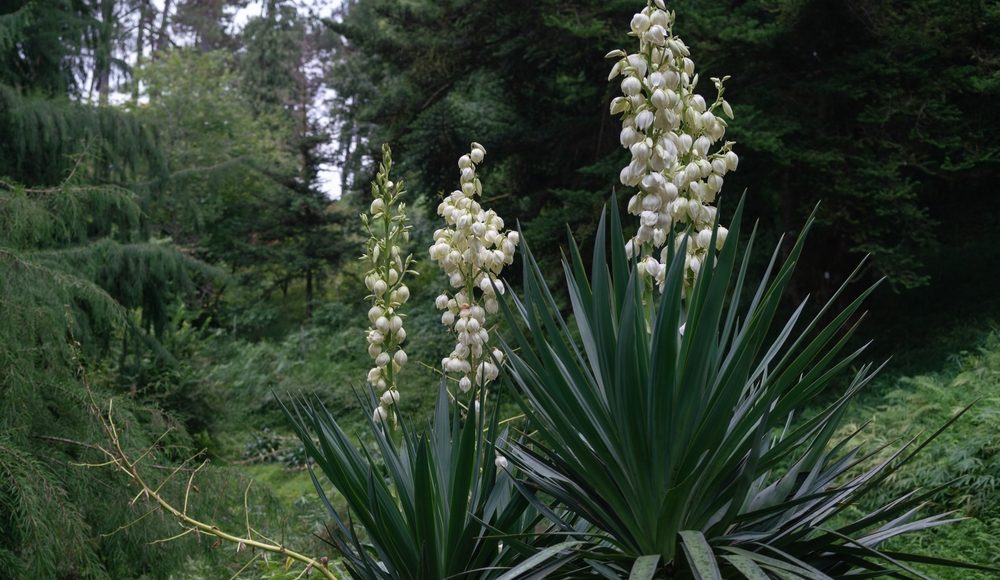


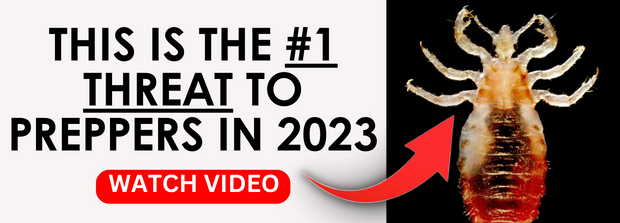





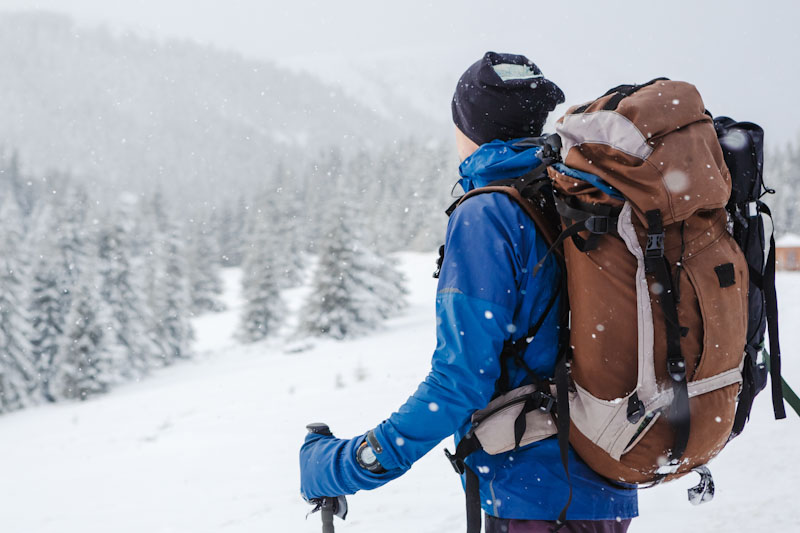
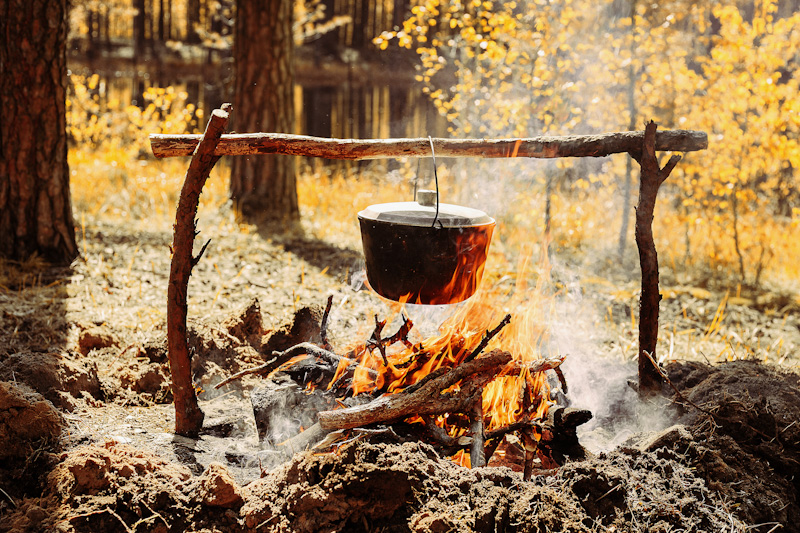

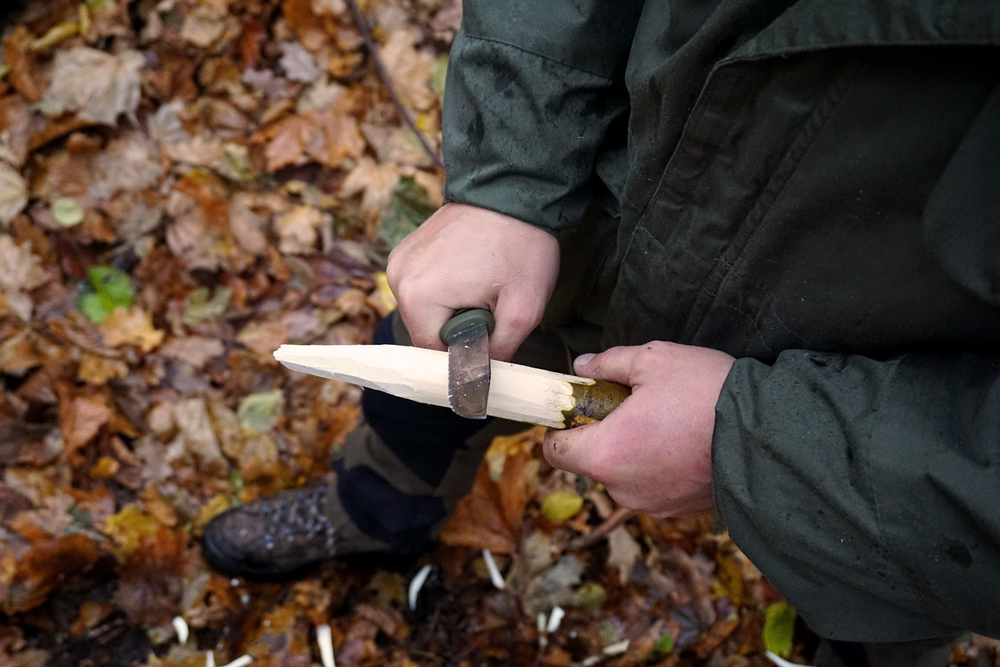

George Segrest | October 25, 2021
|
Is there any of these chapters in the Newnan GA area?
J.R. | November 3, 2021
|
Telling people to use mullein as toilet paper should land you in a field of poison ivy. You will end up with a real nice rash to go with your clean butt.
JERRY D BRADBERRY | September 29, 2023
|
corn cobs work great a little rough